How viable is the World Esports Association?
Asking questions of esports' new federation.
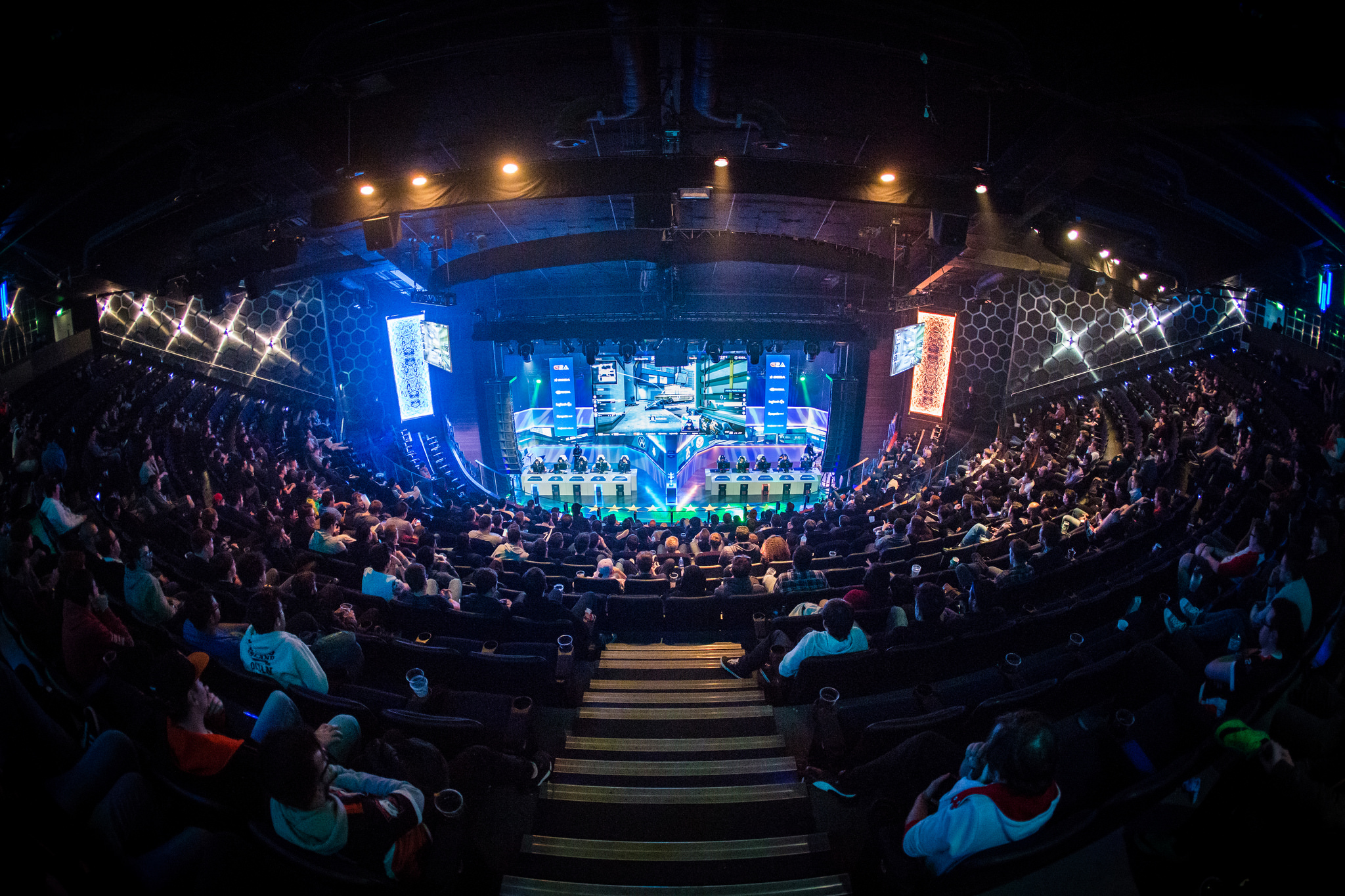
Friday’s announcement of the World Esports Association, WESA, could’ve gone smoother. A leaked logo earlier in the week prompted widespread speculation, and even in the immediate aftermath of the official announcement it was tough to find a clear explanation of what this new sports federation would actually do. In part this is the fault of WESA itself. I was at the launch in London, and my experience was of a number of good ideas struggling to make themselves heard above the furore.
There are a bunch of different ways to say ‘we want to create a more stable and professional conversation around esports’, after all, and ‘we’ve started FIFA’ is only one of them—although it just happens to be the one that makes people think about corruption and bad governance. It feels like they’ve been fighting fires from minute one as a consequence of mishandling a few key points.
On the other hand, the way the conversation around WESA has developed demonstrates, with bittersweet irony, why something like WESA is necessary. The esports community likes to hold court in Reddit and on Twitter. YouTube and the press are used as soundboards that start public fights elsewhere on social media. And I’m not just talking about fans: the last few days have seen senior industry figures—including members of WESA—get drawn into a mess of he-said-she-said. This is an industry used to conducting its affairs through DMs and private Skype channels, where transparency (i.e, a leaked chat log) is usually a consequence of a fight getting out of hand.
WESA’s most appealing stated aim is its desire to structure and professionalise exactly this kind of conversation; to provide a way for esports orgs to talk to one another in a way that avoids exactly this kind of unhappy fallout. I don’t think that’s a crazy idea, in and of itself.
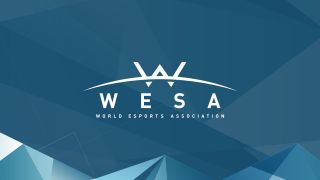
What, how, why
Here’s a broad outline: WESA is a committee featuring eight large esports organisations (Fnatic, NiP, Na’Vi, Virtus.pro, G2, EnVyUs, FaZe and mousesports) and one tournament organiser (ESL). Representatives for these organisations are joined by a representative from a player council. WESA is distinct from other sports federations in that it gives players direct representation independent of their teams.
Motions brought to the committee will require a 75% majority vote to pass, and any policies brought into being by WESA will only be applicable to WESA members and WESA-sanctioned leagues. WESA members will be able to play in non-WESA leagues, and non-members will be able to play in leagues that WESA oversees.
WESA itself will not run events or leagues at all, but given the connection to ESL it’s not surprising that the CS:GO Pro League is the first to be sanctioned by WESA. Areas of consideration suggested to me on Friday range from anti-doping to anti-gambling, broadcast rights, scheduling and legal dispute resolution.
The biggest gaming news, reviews and hardware deals
Keep up to date with the most important stories and the best deals, as picked by the PC Gamer team.
To that latter end, WESA will also operate an arbitration court designed specifically for esports. They boast that this will be able to operate via video chat, return a verdict within 48 hours, and allow disputes to be resolved independent of the complex web of national jurisdictions that esports has traditionally struggled to navigate.
The association will fund itself with membership fees (the board would not specify how much this is) and by taking a revenue share of the leagues that it sanctions. This share is split evenly between all member organisations.
Almost all of it has precedent within conventional sport (WESA’s first league commissioner, Pietro Fringuelli, was previously a legal advisor to the German Bundesliga) and the failings of similar organisations, like FIFA, does not necessarily mean that this also will fail. Associations and unions are not de facto corrupt, and all governance is imperfect to a degree. If esports is to become more structured, that has to start somewhere. There is no perfect external authority to be consulted for an industry this new, with this many unique considerations. To that end, I understand why WESA has formed in the way that it has.
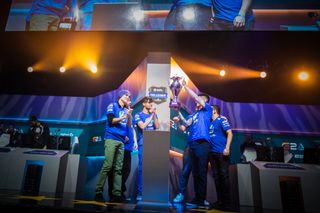
Cause for concern
The controversy surrounding WESA, then, comes from a few different places: concern about who is involved in WESA and how much power they’ll have; the motivations that drive its members; the failure of previous initiatives like this; a general distrust of centralised governance. I put these concerns to James ‘Kennigit’ Lampkin, VP of Pro Gaming for ESL.
“You look back at an organisation like G7” Lampkin says. “These teams came together and said ‘we’re going to work together, we’re going to unionise against organisers and leagues’. Then other people tried it. And it always failed. Why did it always fail? Because every single time a new game comes out, that relationship set resets. Those team owners are incentivised to be ultra-competitive in the space, get the best players they can, go after each other—shady stuff happens. When you say to team owners, ‘hey just go work together’, consistently over the last decade it didn’t work.”
Creating a stable structure that can produce guidelines that would survive the death of any given game was one of WESA’s founding ideas. “That was the thought behind the structure” Lampkin says. “Instead of having teams operate by themselves and organisers operate by themselves, maybe we could actually create something sustainable that doesn't get destroyed the second a new game comes out.”
This sentiment is echoed by Fnatic’s Patrik ‘cArn’ Sättermon, who was captain of the Fnatic CS:GO team for six years. “You cannot really expect, in esports, that a title we play today will be around in a hundred years. But nevertheless we feel like a game can have longer longevity than it has today. In order to stimulate such, we need to get organised. We need to set standards. We need to ensure that the professional circuit that we are very much part of is well-defined, predictable, that sponsors can understand the scheduling and so on. This has not been the case in CSGO in particular.”
People think we’re just coming in and making a power grab and trying to control the entire space. That is by no means the ambition we have here at all.
Patrik Sättermon
A lot of what WESA seeks to do (arbitration being the exception) already happens unofficially in some form or another. Esports orgs talk to one another in order to agree on schedules, players talk to each other about how they are treated, and how they’d like to be treated, and so on. At its most benign, WESA seeks to make these processes more transparent and consistent.
“Teams, and players, have come together in very unofficial ways” Lampkin says. “We deal with a player union in Dota and a player union in CS:GO. But the significance of those unions is fairly small—the Dota union, for example, exploded because of a Twitter fight between two players. An entire union destroyed because of a Twitter fight between two players. If we're talking about how to make this work, it has to be official.”
“[WESA] will govern and form regulation, but it will form regulation on itself, really” Lampkin says. “It's a collective partnership that brings stakeholders to the table.”
Both Sättermon and Lampkin acknowledge that skepticism is a likely response to any initiative like this. “There will be questions asked” Sättermon says. “The community will be like, ‘is this good for us?’ There have been projects that appear to be similar from the get go… people have an inherent caution when it comes to uniting stakeholders, particularly when there are some dominant forces. People think we’re just coming in and making a power grab and trying to control the entire space. That is by no means the ambition we have here at all.”
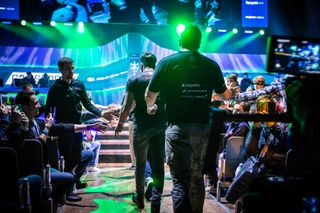
The ESL-ephant in the room
Given WESA’s stated aim to professionalise communication in the industry, the question of who has been invited to participate in that process is a primary concern. There are a lot of high-profile teams already involved, but many that aren’t. Most notably absent, however, are the other tournament organisers: MLG, DreamHack, FACEIT, and so on. As far as WESA’s launch incarnation is concerned, ESL speaks for that entire aspect of the industry. This is clearly questionable, and the hardest thing about WESA to accept on trust.
“What we said was, if we're going to build this structure in WESA, then you're inherently required to balance ESL's power in that system” ESL’s Lampkin says. “Because otherwise, as fans say, it looks like ESL's just going to try to dominate everything. That is specifically why we built it with players and teams with so much power. Certainly ESL as an organiser love our own events, but when you bring all these other people in who counterbalance that view, you get a system that allows for us to have a proper communication structure with other organisers and with non-member teams.”
The structure of WESA, Lampkin argues, prevents ESL from operating with the kind of impunity that concerned fans have suggested. Even so, there are understandable concerns about how ESL might influence the association’s priorities, or take advantage of these new clearer lines of communication. To that end, Lampkin asks that people wait and see.
“What it comes down to is the actions of the association” he says. “If all the WESA teams pull out of ELEAGUE tomorrow, then you can quickly go and say 'hey, yeah, this was a terrible idea.' The point is that if, theoretically, ESL runs into the WESA board room and says 'we're shutting down everything!' The players say 'no, we're boycotting you' and the team owners walk out of the room and the entire organisation crumbles immediately. Because it requires consensus! That's the entire point of the system.”
Even so, the question ‘but why isn’t anyone else directly involved’ should be asked. Lampkin’s answer surprised me. “ESL was in negotiations with other organisers” he says. “Not all other organisers, but we were in negotiations. ‘Hey, is there a way for us to align our interests.' And after months of this process, hmm-ing and ha-ing, we came to the realisation that, no, it fails. As leagues, we are too competitive with each other across the esports ecosystem.”
Lampkin didn’t offer a specific explanation for why these discussions failed, so in that sense this remains another aspect of this difficult subject that the community is being asked to take on trust. ‘We tried, but we’re the only people who want to make this happen’ is the message here. And it’s easy to be cynical about that message.
This is an open playing field. There is nothing stopping any organiser from building systems, fighting doping, fighting corruption, fighting against match-fixing.
James Lampkin
When I spoke to Fnatic’s Patrik Sättermon, however, he independently verified Lampkin’s sentiment. “We set out, as teams, to talk to tournament organisers a few years ago” he says. “Through that process, eventually we learned that what we can accomplish with ESL is superior to the other discussions we had. This doesn’t mean that those guys are cancelled out or not in consideration going forward. In fact, we hope to set a great standard and maybe stimulate other regions to set up something similar. Maybe we can work together.”
“There's always, I see it in esports press, I see it from fans, and I see it from our competitors, this implication that we're bulldozing or crushing” Lampkin says. “What we're saying is, no. What we're doing is we're working. This is an open playing field. There is nothing stopping any organiser from building systems, fighting doping, fighting corruption, fighting against match-fixing. Anybody can go and do that, it's just the case that ESL has been a bit ahead of the pack on a lot of this stuff. Look at the esports integrity initiative we had, AnyKey, WESA—these are initiatives that we put forward with others to create a better structure within esports. Because literally we cannot do it by ourselves.”
This, at least, is something that can be independently assessed. ESL have repeatedly expressed an interest in professionalising esports—no other tournament organiser has been as public about anti-doping, for example, or diversity. This does not mean that their involvement in WESA is altruistic, but it does lend credence to Lampkin’s notion that ESL happens to be the organisation with the most drive when it comes to these issues. This might sound unfair, particularly if you’re working for one of ESL’s rivals: in which case the onus is on those organisations to prove that they’re just as engaged.
Put it this way: if WESA is successful in creating a system of governance that makes CS:GO players richer, safer and happier, and attaches that primarily to ESL events, then ESL will definitely benefit—and that is worth being circumspect about. However: players will also be richer, safer and happier. That should make it harder for tournament organisers of all kinds, including ESL, to offer players anything less than the good deal that they’ve become accustomed to. This is a best-case scenario, perhaps, but it illustrates why a pragmatic approach, even one that seems compromised, has the potential to exert a positive influence over the esports industry as a whole.
“This product is very close to my heart” Sättermon says. “Esports has been vastly changing, but some stuff hasn’t changed in pace with the rest of the industry. Like player representation, benefits, broadcasting rights—stuff you normally see in conventional sports that have been around for a long time.”
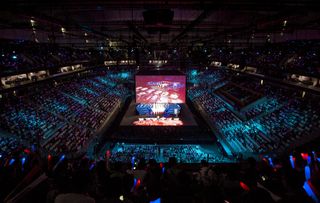
Players and teams
If long-term players want these things, and they are not being provided for in the industry as it currently operates, then they will go looking for it. It’s worth considering that WESA has been established with a focus on CS:GO—that seems to have been the main criteria governing which teams were initially invited—and the CS:GO scene is probably the most open to this kind of structure. There’s little publisher oversight, a lot of different stakeholders, and little stability.
“CS:GO is, I think, the one game where there's an opportunity for team owners to start to manage themselves without—excuse the analogy—without a parent” says Lampkin. “[WESA] is not a reporting-upwards relationship, it's a consensus-building organisation.”
This is the sense that I get from Sättermon, too: CS:GO both needs better governance and is open to it. He cites League of Legends as an attractive model.
“I think there's a lot of learning to take from Riot” Sättermon says. “How they set up the LCS. The LCS has proven to be a very successful formula for teams, there's a schedule, there's a transfer window, the fans are really hype. That's similar to the sports world, and sports have had a much longer time to figure these things out.”
It’s easy to see where the appeal of WESA may lie for teams like Fnatic. Reliable prize pools, regulations and schedules are good for business, and they are specifically good at attracting major sponsors that might be put off by esports’ ‘wild west’ reputation. If WESA (or an initiative like it) succeeds, then the parties involved stand to benefit tremendously. But—and this is a really important ‘but’—stability and profitability translates directly into a better experience for players and viewers. If you want more events near you, better support for semi-pro teams, more regular games, then all of that stems from a healthier business. I’m not saying that WESA can or will achieve this, but it’s important to understand the contours of the area between ‘trying to make esports more viable’ and ‘trying to take over the industry.’
Through WESA, however, these organisations—many of them a decade or more old—have an opportunity to become the official governing heart of the CS:GO scene. They may well prove to be benevolent governors, but they’ll still define the environment that players operate within. The growth of the Dota 2 scene makes for a useful contrast, here. The vast prize pools associated with the International, coupled with Valve’s preference for working directly with players rather than teams, has created a highly unstable environment. The influence of the traditional esports orgs has been on the wane since 2014, when a number of teams split up and reassembled under new banners. This has been a mixed blessing: ‘more freedom’ has, on occasion, meant ‘more freedom to get screwed over’. But players have largely been in charge of their own destinies.
As prize pools in CS:GO increase, it’s not surprising that the old orgs are looking for ways to increase their significance in the eyes of their players before the scene goes the way of Dota. If they’re trying to do that by offering the players a better deal as part of a WESA member org than they’d get on their own, however, then it’s hard to say that this is necessarily a bad thing.
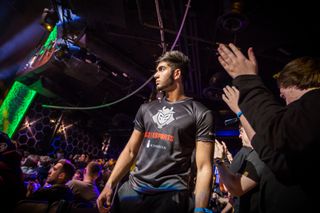
Long-term viability
I suspect the discussion around WESA will change dramatically the moment they either (a) screw up or (b) solve a major problem for players. The former would prove the cynicism of the last few days warranted. The latter would suggest that ESL et al deserve more benefit of the doubt than they’ve been getting.
Beyond that, the organisation’s first challenge is creating meaningful regulations that create more stability and better quality of life for players within the CS:GO scene. That is far easier said than done, and likely the work of months if not years. But if they can do that—and that’s another big ‘but’—then the next step is to apply WESA’s learnings to other esports. Sättermon is confident that this is possible.
“It’s inevitable to capture the learnings and apply the learnings across the board, right?” He says. “Not only in future Counter-Strike leagues but within our organisation across other games. That doesn’t mean it has to be a forceful approach—it’s about getting in the same room, understanding the opportunity and how we can collaborate together. The intention is to very much be open minded, include as many stakeholders as possible, but not forgoing the intention to professionalise the space… we want to do this in a sustainable fashion.”
The only way WESA works is if it has the buy-in of players and teams.
James Lampkin
Lampkin argues that WESA doesn’t need to ‘take over’ the industry to be effective—that it can be just as useful as a positive example independent of other organisations, and that they would be happy for this to be the case. “I don’t think Riot needs WESA, right?” He says. “But what we see is a lot of problems that we look to solve are either not the core competency of a lot of game publishers, so the goal for us is, we provide the solution—even if we’re not engaged with that publisher through WESA—if we’ve figured out how to solve anti-doping, or we’ve figured out how to solve gambling issues, then just copy us! It’s an open market.”
Despite the talk of the LCS, there’s a little of Valve’s logic to this stance. WESA will either succeed because its ideas work, Lampkin argues, or fail because they don’t—and either is good for the industry as a whole. “The only way WESA works is if it has the buy-in of players and teams” he says. “It's the only way it works. I can go and ask nicely for a team to join but if they don't want to join they don't have to join. It's entirely based on the value proposition that we as a group here have created to try to stabilise things and create a better structure.”
There is a long, tough journey ahead for WESA. The association has been founded in a culture that was primed to reject it from the start, and it may yet prove that this is justified. Yet I worry that this same culture might prevent WESA, or an organisation like it, from being effective despite best intentions. If every attempt to establish standards is treated like a conspiracy, and every attempt to make esports more profitable treated like a scandal, then the conversation within the industry—between teams and showrunners, teams and players, organisations and fans—has almost nowhere to go.
It’s important to ask tough questions. As the esports industry matures, however, these are questions that need answering too: who is going to offer players a secure career path? Who is going to prevent another crash? Who is going to ensure that the rights of players don’t get trampled as the business becomes more profitable? WESA may not prove to have all, or any, of the answers. In that case, the question becomes: who does?
Joining in 2011, Chris made his start with PC Gamer turning beautiful trees into magazines, first as a writer and later as deputy editor. Once PCG's reluctant MMO champion , his discovery of Dota 2 in 2012 led him to much darker, stranger places. In 2015, Chris became the editor of PC Gamer Pro, overseeing our online coverage of competitive gaming and esports. He left in 2017, and can be now found making games and recording the Crate & Crowbar podcast.
Most Popular

